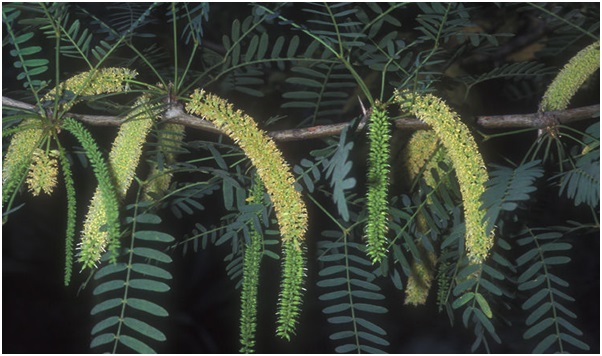NSG Takes on Invasive Vilayati Kikar/Prosopis Juliflora (Indian Express)

- 11 Oct 2023
Why in the News?
The National Security Guard (NSG) is actively combating the encroachment of the invasive plant species known as vilayati kikar at its Manesar campus, situated near the Delhi-Ajmer highway.
What is Prosopis Juliflora?
- Prosopis juliflora, a shrub or small tree belonging to the Fabaceae family and classified as a type of mesquite, is indigenous to Mexico, South America, and the Caribbean.
- Introduced to Delhi by the British in the 1920s during the construction of the national capital, this species is locally known by various names in India, including Bellary jaali, seemai karuvelam, seemai jaali, gando baval, and vilayati kikar.
- Known for its high ecological adaptability, Prosopis juliflora can thrive in diverse soil types, ranging from sand dunes to clay, and from saline to alkaline soils.
- It exhibits a wide altitude range, growing below 200 to above 1500 meters above sea level, with a mean annual rainfall varying from 50 to 1500 mm.
- However, despite its adaptability, it is recognized as an invasive plant with a propensity for vigorous growth, enabling it to outcompete indigenous plant species.
Impacts on the Environment: This invasive species pose significant environmental challenges:
- Prosopis juliflora absorbs more than four litres of water to produce one kilogram of biomass.
- The plant generates less oxygen and more carbon dioxide, making it less conducive to supporting bird habitats.
- It has the potential to contaminate groundwater, posing risks to the overall quality of this vital resource.
- The species contributes to land erosion by displacing grasslands that serve as habitats for native plants and animals.
- The invasive nature of Prosopis juliflora raises concerns about its ecological impact and necessitates efforts to manage and control its spread in affected regions.
